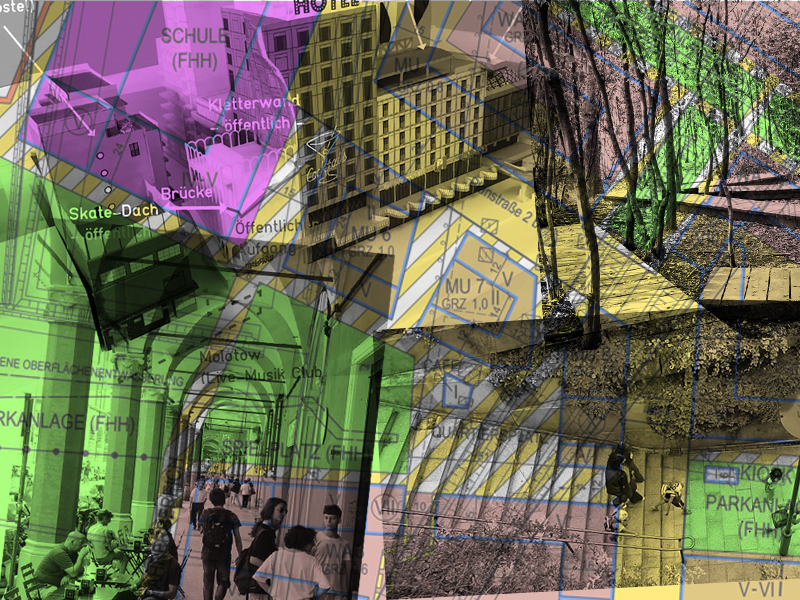Thresholds as Design Device
Seminar
Teaching
Due to their inherent ambivaleoce, threshold spaces are a difficult phenomenon to grasp, they separate and connect at the same time. They are spaces of transition, within the architectural to the urban to the geographical scale. From the cushion on the window sill, to the doorstep, walkways, steps, foyers, arcades, alleys, bridges, squares or zones between two neighbourhoods.
As the city gets increasingly distributed to private ownership, spaces that are beyond the control of ownership and use and that can be variously appropriated are becoming scarcer and scarcer. We start with the hypothesis that they are spaces that are often not focused on by those who have power, sovereignty of interpretation and economic interest within urban planning processes which is why they offer space for all those people and uses that are not considered in the economically exploitable dty. Therefore, they are deeply urban and necessary for a common good oriented dty that is more oriented towards the needs of all than the profit of a few.
Within the seminar we will use literature to get an overview of the spectrum and definition of threshold spaces. We will examine the category of planned threshold spaces using various examples within Berlin through the means of mapping. By doing so, we will analyse the spatial conditions in the context of use, appropriation and the underlying sets of rules. With the help of this glossary of interstices we have created, we will reflect on our actions as planners. We will discuss how the identified spatial qualities can be used with more subtlety as part of our design vocabulary, what arguments can be used to negotiate them with commissf oners and what planning tools can be used to inscribe them in the fabric of the city.
First session: Tuesday, 25.04.23 at 1Oam (every second week)
Registration via MOSES.
Supervision: Julia Köpper
